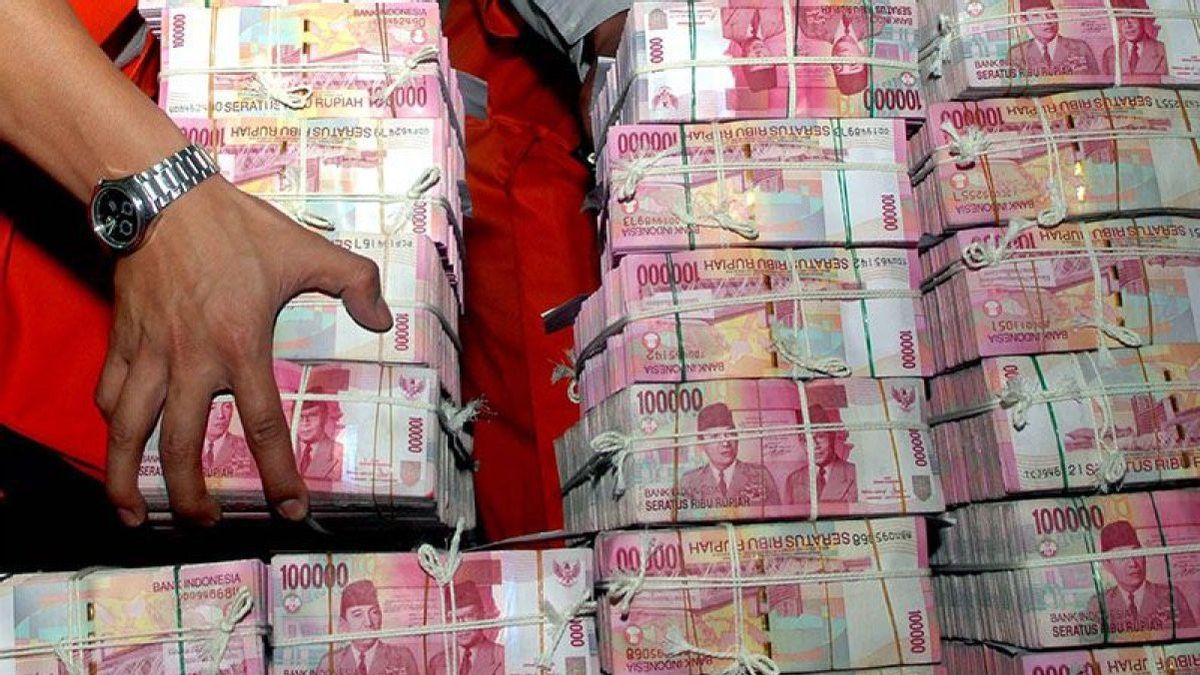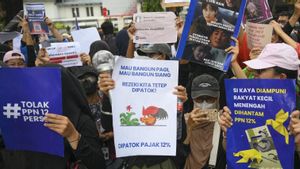JAKARTA - The State-Owned Enterprise (BUMN) engaged in the financial industry, PT Bahana TCW Investment Management, expressed its support for Bank Indonesia (BI)'s move to adjust the benchmark interest rate several months ago to 3.27 percent.
Chief Economist of Bahana TCW, Budi Hikmat, said that his party believes the efforts taken by the monetary authority are aimed at maintaining resilience and macroeconomic balance in the national economy. In fact, he denied that an increase in the BI rate could cause a certain slowdown in the country.
"The increase in Bank Indonesia's interest rate is not to put a brake on economic growth, but to control core inflation next year to remain at the target interval", he said in a written statement on Tuesday, September 20.
Budi added that the progress in the interest rate could even bring its own advantages for Indonesia. Because
"This can be a special attraction for our financial market", he said.
It was explained that the Indonesian economy had just been released from the pandemic and still needed a stimulus so that it could grow faster to increase people's income. He said, cost-push inflation generally demands increased efficiency in the use of energy sources and spurring domestic production, especially for imported commodities.
"Especially in developed countries such as the United States and the European Union, which have implemented massive stimulus and acted as vaccine producers, a significant increase in interest rates is essentially a normalization of interest rates", he said.
VOIR éGALEMENT:
Furthermore, Budi said that the increase in inflation in Indonesia is unique. This is because Indonesia has benefited relatively from the global inflation phenomenon, given that rising prices for income commodities such as coal, nickel, and CPO have exceeded cost commodities, especially crude oil.
Initially, the government-controlled the transmission of global inflation, especially due to the increase in crude oil prices by continuing to increase the allocation of energy subsidies to more than Rp 500 trillion.
"The government has reasons to allocate subsidies for posts that are more productive and equitable, such as in the fields of education, health, and housing", he said.
In general, this state-owned company appreciates Bank Indonesia's steps in controlling inflation risk as well as controlling the rupiah through various macro-prudential policies, such as absorbing excess liquidity that was poured out during the pandemic.
BI has also intervened in the state bond market so that the yield curve can be used as a reference for banks in setting loan interest rates,” Budi concluded.
The English, Chinese, Japanese, Arabic, and French versions are automatically generated by the AI. So there may still be inaccuracies in translating, please always see Indonesian as our main language. (system supported by DigitalSiber.id)











